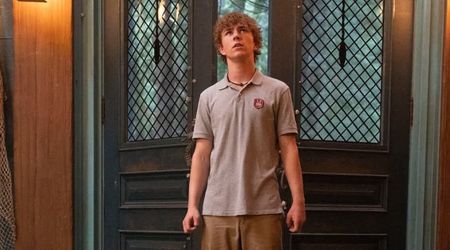While 'The Simpsons' lawsuit about composer’s wrongful firing is serious, here are bizarre cases from its past

‘The Simpsons’, one of the most iconic animated series in the world, has had its fair share of legal controversies, the most recent of which is with the termination of Alf Clausen. And, it’s turning dirty.
In 2017, Clausen, the show’s music composer for 27 years, exited the show. In August 2019, Clausen filed a lawsuit against Disney and its Fox divisions, claiming that he was fired due to age discrimination. In an amended complaint that Clausen filed earlier in April, he added perceived disability to the reasons why he was fired, revealing that he has been diagnosed with Parkinson's disease.
The Hollywood Reporter on April 29 reported that in new court papers, Fox and 'The Simpsons' executives presented their version of why Clausen was let go. In 2016, for an episode of ‘The Simpsons’ titled ‘The Great Phatsby’, Jim Beanz, one of the producers behind Fox's ‘Empire’, was reportedly brought in as a guest star and composer for the episode. Clausen, they alleged, still did much of the work. And ‘The Simpsons’ producer James L. Brooks wasn't happy with the work.
“Around that time, I learned that Clausen had been delegating some of the work of composing music for ‘The Simpsons’ to others, including his son Scott Clausen," said ‘The Simpsons’ producer Richard Sakai. “I believed his unauthorized delegation was unacceptable. I called showrunner [Al] Jean and told him that Clausen had been delegating his composing work; he conveyed to me that he was surprised and disturbed as well.”
Reportedly, this led to more meetings between Brooks, Sakai, and showrunner Matt Selman, where they discussed how Clausen was having others do his work. "We decided that we could improve the music on the show by replacing him," Sakai stated. The court papers add, "Apart from the considerable evidence supporting the legitimate creative reasons for the decision, Clausen’s claims are undermined by several facts: He was 48 when he was first engaged as a composer and continued to work through his 50s, 60s and into his 70s; Clausen admits his disability was not affecting his work and that he needed no accommodations; and he fails to identify any comments showing animus based on his age, disability or any protected activity.”
The battle between Clausen and ‘The Simpson’ is, of course, not the first time the show has been embroiled in controversy. However, in comparison to this, the past controversies pale. For example, in 2014, actor Frank Sivero of ‘The Godfather, Part II’ and ‘Goodfellas’ fame claimed that ‘The Simpsons’ character, Louie, a henchman to mob boss Fat Tony, was based on him. He said that the show had misappropriated his name and likeness, therefore infringing his right of publicity. In 2018, however, the California Court of Appeals, affirming a lower court’s decision, disposed of the $250 million lawsuit before it reached trial.
In 2003, Fox News threatened to sue the makers of ‘The Simpsons’ over a spoof news ticker, which included headlines like “Do Democrats cause cancer?” The show’s creator Matt Groening said the news channel backed down because it would have caused Fox to bring a lawsuit against itself. “Fox said they would sue the show and we called their bluff because we didn't think Rupert Murdoch would pay for Fox to sue itself. We got away with it," he said then.
In 2015, a hologram company called Hologram USA settled its lawsuit against 20th Century Fox over the studio’s use of a hologram of Homer Simpson during a Comic-Con panel featuring the creator of ‘The Simpsons’, Matt Groening. Hologram USA claimed in a lawsuit filed in August 2014 that it held exclusive rights to patents on the technology and that Fox and ‘The Simpsons’ producer Gracie Films did not obtain a license.
Then there is a more bizarre one. In 2005 in Russia, Igor Smykov demanded 300,000 rubles of moral damage compensation, claiming ‘The Simpsons’ was morally degenerate and promoted drugs, violence, and homosexuality. This, because his six-year-old son asked him what cocaine was and called his mother “a toad” after watching the show. A Russian court rejected the claims.
But the most bizarre of all was when in 2002, the show was threatened to be sued by the Rio de Janeiro tourist board, after an episode that featured the city. In traditional offensiveness characteristic of ‘The Simpsons’, the show depicted the city as full of bisexual men, fearsome monkeys, and tourists-kidnapping taxi drivers. Then Brazilian president, Fernando Henrique Cardoso, had even said that the show had “brought a distorted vision of Brazilian reality”. Following this, the show’s creators issued an apology.










